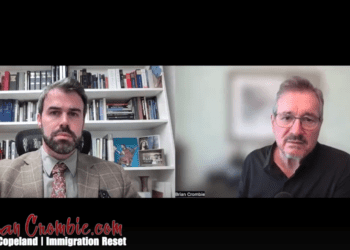Ottawa’s plan to buy interim Super Hornets will cost more and fail to give the Canadian Forces the fighter it needs, write Brian Lee Crowley and David McDonough.
By Brian Lee Crowley and David McDonough, June 19, 2017
The federal government’s current very public spat with Boeing presents an opportunity to reverse the rather hasty proposal to procure an interim fleet of Boeing Super Hornet jets, which was announced last fall.
Indeed, there are signs that the government may be planning to do just that. Its defence policy statement refers only to “the potential acquisition of an interim aircraft,” omitting even a reference to the Super Hornet. This government has professed a commitment to “evidence-based” decision-making and has demonstrated the maturity to change policy when the facts support it.
And the experts have spoken clearly on this issue. According to new research by the Macdonald-Laurier Institute, nearly nine out of 10 of the top defence experts we surveyed think the government should cancel the Super Hornet “interim purchase” and proceed with a proper procurement process to replace the entire fleet of ageing CF-18s without delay.
There was a strong consensus that the proposal for an interim Super Hornet fleet lacks merit, is strategically unsound and ultimately should be cancelled.
MLI surveyed the country’s foremost security and defence policy thinkers and practitioners to get an independent, dispassionate and expert assessment of the merits of the interim Super Hornet proposal and its underlying rationale. In total, 75 experts took part in our survey. Participants included noted scholars and think tank representatives, former senior military officers from all three services and former government officials.
The results of this survey could not be clearer. Overall, there was a strong consensus that the proposal for an interim Super Hornet fleet lacks merit, is strategically unsound and ultimately should be cancelled. Indeed, an overwhelming majority of respondents (88 per cent) said the government should cancel its plan for an interim Super Hornet purchase and instead proceed with a permanent fighter jet replacement. According to one respondent, “The damage to the RCAF and Canada’s defence posture would (otherwise) be devastating and permanent.”
Notably, respondents were also critical of the reasons the government had used to justify its proposal.
First, on the issue of a pressing “capability gap” that required the purchase of an interim fleet, 67.5 per cent thought that there was no gap facing the RCAF. As one respondent noted, “If there were a true ‘capability gap,’ the government would not now be threatening to cancel (the deal) over Boeing’s trade dispute with Bombardier.”
Second, the government had also insisted on a five-year timeframe to be able to hold a fighter aircraft competition. Yet here, a majority of respondents (79.7 per cent) thought that this time frame would actually be much shorter. Many noted that a competition would only take one to two years. As one respondent concluded, “there is more known about potential aircraft candidates than on virtually any previous acquisition.”
Notably, these responses raise serious questions about the rationale for an interim fleet, irrespective of the aircraft selected. This was brought home by the response to another question on whether there is any need for Canada to purchase an interim fleet.
Here, 82.4 per cent of respondents did not think an interim fleet was required, compared to only four per cent who said it was. In the words of one respondent, “the RCAF has been successfully risk-managing the fighter commitments for decades and can continue to do so for some additional time.”
The cost of an interim Super Hornet fleet was also widely criticized by respondents in the survey. 86.6 per cent of respondents believed that the interim Super Hornets represent a significant procurement cost. An even stronger majority (89.3 per cent) pointed to the additional operating cost of a mixed fleet arrangement. Duplication of the support system when operating two types of aircraft was noted as a particular issue.
Many respondents (72.2 per cent) also noted how an interim fleet would likely have a de facto impact on the final fighter aircraft replacement. As one respondent concluded, if the government opted for an interim fleet of Super Hornets, “a future government would be more inclined to purchase the same model in order to reduce through-life costs.”
This survey shows that expert opinion in the country believes Canada would be well served if the government eschewed interim Super Hornets altogether, and immediately pursued a permanent fighter aircraft replacement.
A strong majority of respondents (85.1 per cent) thought the interim Super Hornet proposal was neither wise nor prudent on strategic or operational grounds, with many of them seeing it as part of the Liberal’s “political/electoral strategy” more than anything else. Many were also quite pointed in their comments on the Super Hornet aircraft in particular, given its drawbacks in terms of connectivity and interoperability compared to the F-35. In the words of one respondent, the Super Hornet was “a fourth generation fighter in a fifth generation world.”
This survey shows that expert opinion in the country believes Canada would be well served if the government eschewed interim Super Hornets altogether, and immediately pursued a permanent fighter aircraft replacement. The respondents were not asked their opinions on what the long-term replacement aircraft should be.
The Boeing-Bombardier spat offers the government a great opportunity to reconsider the wisdom of its plan. Ultimately, the experts agree that the government needs to undertake immediately a clean, solid and fair process to find the best fighter fleet for Canada – and that an interim purchase of Super Hornets clearly fails to meet that standard.
David McDonough is deputy editor at the Macdonald-Laurier Institute and a Research Fellow at Dalhousie University’s Centre for the Study of Security and Development.
Brian Lee Crowley is the managing director of the Macdonald-Laurier Institute.




